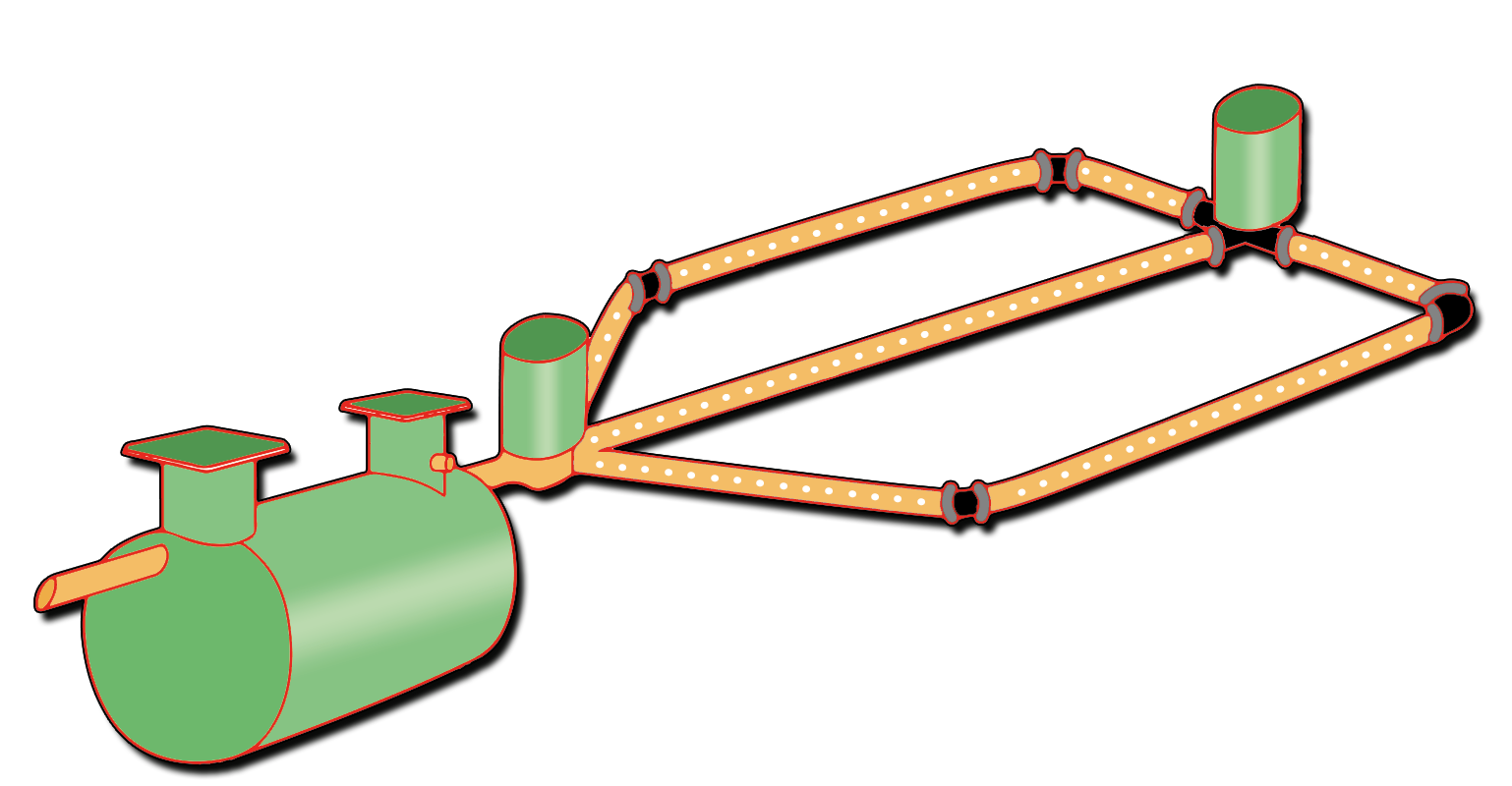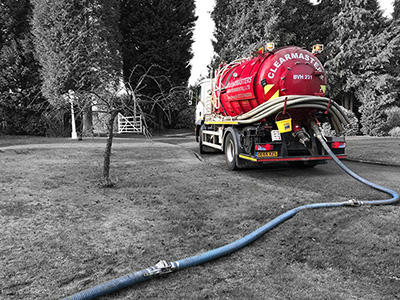Whether you have a property or are looking to buy or rent one with ‘off mains drainage’ it is important to understand what type of sewage system you have and the necessary maintenance involved.
There are many forms of Septic Tanks, but they all follow the same principle. Sewage and wastewater flow from your property into the tank via the inlet. This large chamber then allows the solids to settle on the bottom of the tank, fats and grease to float on top and then the liquids in the middle can exit the tank via the outlet into a Distribution Chamber. The liquids then make their way to a drainage field, which is a collection of perforated pipework located below ground, where they can slowly seep away into the ground.

Failing to properly maintain your Septic Tank can have disastrous effects on the environment around you. make sure you are instructing an established, respected and fully licenced waste carrier, like Clearmasters, to look after your sewage system.
We know, let's try and break some of these things down for you...
 Inlet - This is the entry point into the tank. all your sinks, toilets etc will flow though pipework from your house to here.
Inlet - This is the entry point into the tank. all your sinks, toilets etc will flow though pipework from your house to here.
 Tank - The main section of your sewage system, this is a large container usually made from plastic, fiberglass, brick or concrete.
Tank - The main section of your sewage system, this is a large container usually made from plastic, fiberglass, brick or concrete.
 Outlet - This is the pipe leading out of the tank to the Distribution Chamber. usually with a T-Pipe (damn it, more jargon) attached to stop debris getting down the pipe.
Outlet - This is the pipe leading out of the tank to the Distribution Chamber. usually with a T-Pipe (damn it, more jargon) attached to stop debris getting down the pipe.
 Distribution Chamber - This sends the liquid evenly between the branches of the Drainage Field. It is also where you would take a sample from.
Distribution Chamber - This sends the liquid evenly between the branches of the Drainage Field. It is also where you would take a sample from.
 Drainage Field - The final part of the system before the liquid goes to ground. bacteria grows here to help treat the liquid before it gets out.
Drainage Field - The final part of the system before the liquid goes to ground. bacteria grows here to help treat the liquid before it gets out.
Fair question, but having your Septic Tank emptied at least annually is a requirement of the Environment Agency General Binding Rules.
Although the liquids can get out, the fats and solids remain and build up over time. This is what we are removing when we come to empty it. This is more often described as a de-sludge.
If these build up too much you run the risk of these finding their way into the outlet. this can cause irreparable damage to your drainage field, resulting in your system failing and a hefty bill for a new drainage field to be installed.

Quite simply, we are the best!
We are always on hand, whether it be a routine visit, or an emergency call out to offer you the very best in Septic Tank emptying. We pride ourselves on having a modern fleet of vehicles containing the highest tech equipment to ensure that we can provide you with the high levels of reliability and efficiency that we constantly achieve.
Our friendly and knowledgeable office team, are always available to discuss or advise on any of your Septic Tank requirements or simply to schedule in your Septic Tank emptying at a convenient time and date that suits you.
On site, our team of dedicated, friendly and fully trained engineers will ensure that your emptying is carried out to the highest standard with minimal disruption. Our engineers are always willing and fully encouraged to spend time answering any questions you may have regarding your sewage system.
Don't fancy opening the lid and taking a look? We don't blame you! Slow drains, nasty odours and gurgling pipes are the most common signs. We can check if your not sure.
Your drains will stop flowing and back up, eventually it will overflow and make a mess of your garden and damage the surrounding environment.
You need to think about the capacity of the tank, maybe a good time to look at having a septic tank or treatment plant installed whist you're at it.
A sign of this will be pooling water, ground dipping and the grass around the cesspit growing faster than the rest. In this scenario its best to get our team out to inspect/repair.
This depends on the land/space you have but, in most cases, yes! Outlaying for a lower maintenance system could save you a lot in the long run!
You don't need to register your cesspit. That said, if you plan to install a new one you will need planning permission and building regulations approval.